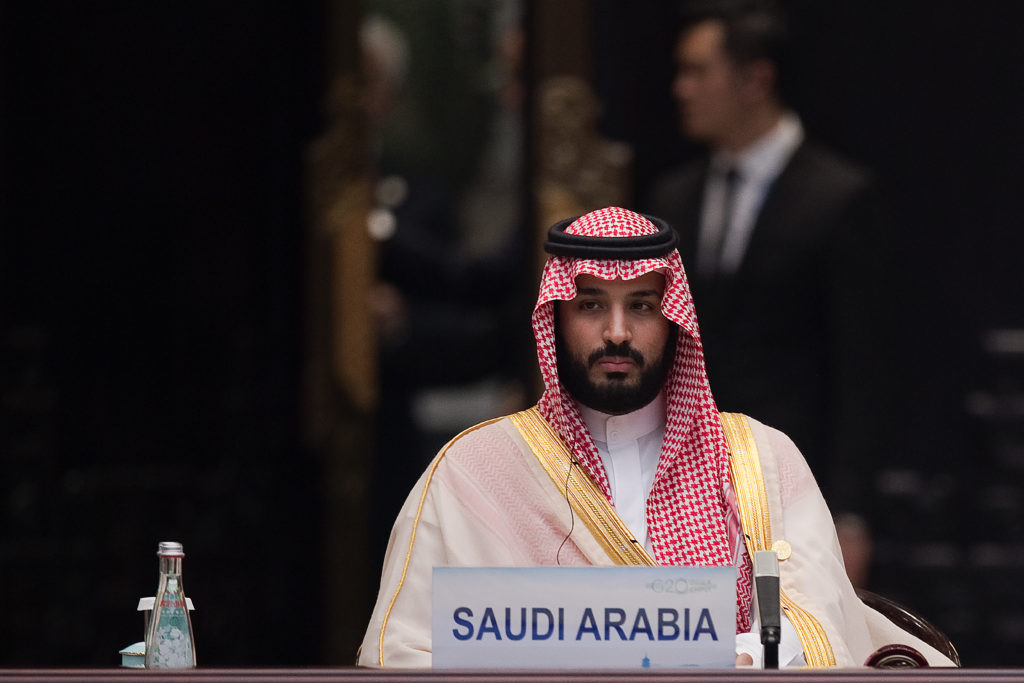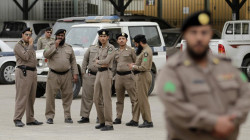US administration to release an intelligence report on Khashoggi killing

Shafaq News/ US administration is about to release a long intelligence report concluding that Saudi Crown Prince Mohammed bin Salman ordered the killing of journalist Jamal Khashoggi in 2018.
According to Washington Post, The report will be made public as early as next week.
Plans for the release come as tension escalate between U.S. and KSA with the American administration canceling arms sales, criticizing human rights abuses and the harassment of dissidents, and pledging to “recalibrate” ties with the kingdom. The Newspaper said.
The administration has said it will continue to supply Saudi Arabia — the world’s biggest customer for U.S. weaponry — with the means to defend itself against regional adversaries, including Iran and the Iranian-backed Houthi rebels in neighboring Yemen, and has indicated it wants to continue a robust counterterrorism partnership, Washington Post said.
But it has also made clear that it will, in contrast to its predecessor, press the Saudis toward a diplomatic end to their war in Yemen and to moderate their own extremism, and it will not allow Riyadh to interfere with its plans to rejoin the Obama-era nuclear deal with Iran.
In what was widely seen as a snub, White House press secretary Jen Psaki said Tuesday that President Biden, who has not yet communicated directly with Saudi rulers, would not be speaking with the crown prince, known as MBS, the country’s de facto leader.
“The president’s counterpart is King Salman,” the crown prince’s aging father, she said, “and I expect that, in appropriate time, [Biden] would have a conversation with him.” The Newspaper stated.
The release of the Khashoggi report may make that a fraught exchange. “I think it’s going to put Biden on the spot,” David Ottaway, a longtime Saudi expert at the Wilson Center. Told Washington Post, “He’s going to have to define what his relationship is going to be with the leadership, and what steps he’s going to take in response.”
“There are so many things weighing on the relationship, and I feel it’s going further south,” Ottaway said.
Khashoggi, a self-exiled Saudi journalist who wrote critically of the kingdom’s leadership from his home in Virginia, including in columns for The Washington Post, was murdered in October 2018, lured to the Saudi Consulate in Istanbul to pick up paperwork required for his planned marriage to a Turkish citizen.
The Washington Post said according to investigations by the Turkish government and the United Nations, Khashoggi was drugged and his body dismembered by Saudi agents.
The Newspaper continued that suspicion immediately fell on MBS. Despite Saudi government claims that he was not involved, the CIA concluded, in an assessment leaked later that year, that Bin Salman had ordered the assassination.
In early 2019, Congress passed a law giving the Trump administration 30 days to submit an unclassified report by the ODNI with “a determination and evidence with respect to the advance knowledge and role of any current or former official of Saudi Arabia . . . over the directing, ordering or tampering of evidence in the killing of Washington Post columnist Jamal Khashoggi.” It specifically ordered a release of names.
The Newspaper said Trump ignored the mandate. In February 2020, his ODNI informed congressional leaders that it was “unable to provide additional information . . . at the unclassified level,” and sent them a copy of the classified CIA assessment.
In July, Director of National Intelligence John Ratcliffe, responding to additional requests from lawmakers, told them nothing would be forthcoming. He had concluded after additional review, he wrote to them, that “the disclosure of additional details surrounding Mr. Khashoggi’s murder would undermine U.S. intelligence sources and methods.”
At the same time, Ratcliffe wrote, “I have determined that there is only a marginal ‘public interest’ argument for this declassification.”
At Avril Haines’s confirmation hearing to become Biden’s national intelligence director, Sen. Ron Wyden (D-Ore.) asked if she would release the ODNI report.
“Yes, Senator. Actually, we’ll follow the law,” Haines replied.
In a statement through his office and reported by Washington Post, Wyden said this week that “after four years of Donald Trump ignoring and enabling Saudi lawlessness, President Biden has already taken steps to restore accountability, by ending support for the horrific Saudi-led war in Yemen, pausing arms sales and promising to follow the law I wrote and release the report on Jamal Khashoggi’s murder. I urge the administration to build on these steps by imposing real consequences on Saudi officials for these and other abuses.”
The first of two cases filed by the Open Society Justice Initiative under the Freedom of Information Act is a broad 2019 request for “all records” related to the killing and who was responsible, including the classified CIA report. Ordered by the court to produce an index of anything that might be responsive, the Trump administration in December asked for an extension of the deadline. The Biden administration has now asked for an additional extension, until next month.
A separate case filed last summer requests the release of the two-page ODNI document. Late Wednesday, the Justice Department asked for a two-week extension, until March 3, to respond to Open Society’s request for a summary judgment. It needed more time, the administration said, “to evaluate issues that may affect the government’s position in these matters.”
Open Society responded with an agreement to a one-week extension, saying that “by Feb. 24, the government should provide a substantive update to the Court regarding next steps in this case, including, in particular, whether the government intends to continue to withhold the ODNI Khashoggi report in its entirety.”
By that time, if Haines follows through on plans to release it, the issue will be moot.
Amrit Singh, counsel for the Open Society cases, said the release is expected to name names. “If they redacted the names of the individuals responsible,” she said in an interview, “that would defeat the purpose of the release of the report. All indications are that the names can be released without compromising sources or methods.”
A third case was filed last year by the Committee to Protect Journalists and the Knight First Amendment Institute, asking for records related to the government’s “duty to warn” Khashoggi of any threats it knew of against him. That case is awaiting a D.C. Court of Appeals decision after oral arguments the week before Biden’s inauguration.
Even as the Saudis explore alternative partners, including Russia and China, for arms purchases and nuclear power capability, they have taken some steps in response to administration concerns, including the recent release of some dissident prisoners.
Some experts believe that if both sides are willing, and nuanced diplomacy is pursued, they can still find a way to work productively together. “Once this report comes out, and it’s very damning to the crown prince, it’s going to be tense,” Karen Young of the American Enterprise Institute said in an interview. “But I think everybody has sort of factored that in. . . . Everybody understands that this was a decision that he had something to do with.”
The first order of business now, she said, is reestablishing “appropriate channels of communication” that were all but abandoned by Trump, who left most ties to a personal relationship between the crown prince and Jared Kushner, Trump’s son-in-law and White House adviser. Counterparts at various government levels “need to be speaking to each other in routine and official channels,” Young said.
Mohammed also serves as his country’s defense minister, and the administration is likely to focus on his role there as the proper level of contact.
“But will there be Oval Office visits?” she said. “No, definitely not.”
